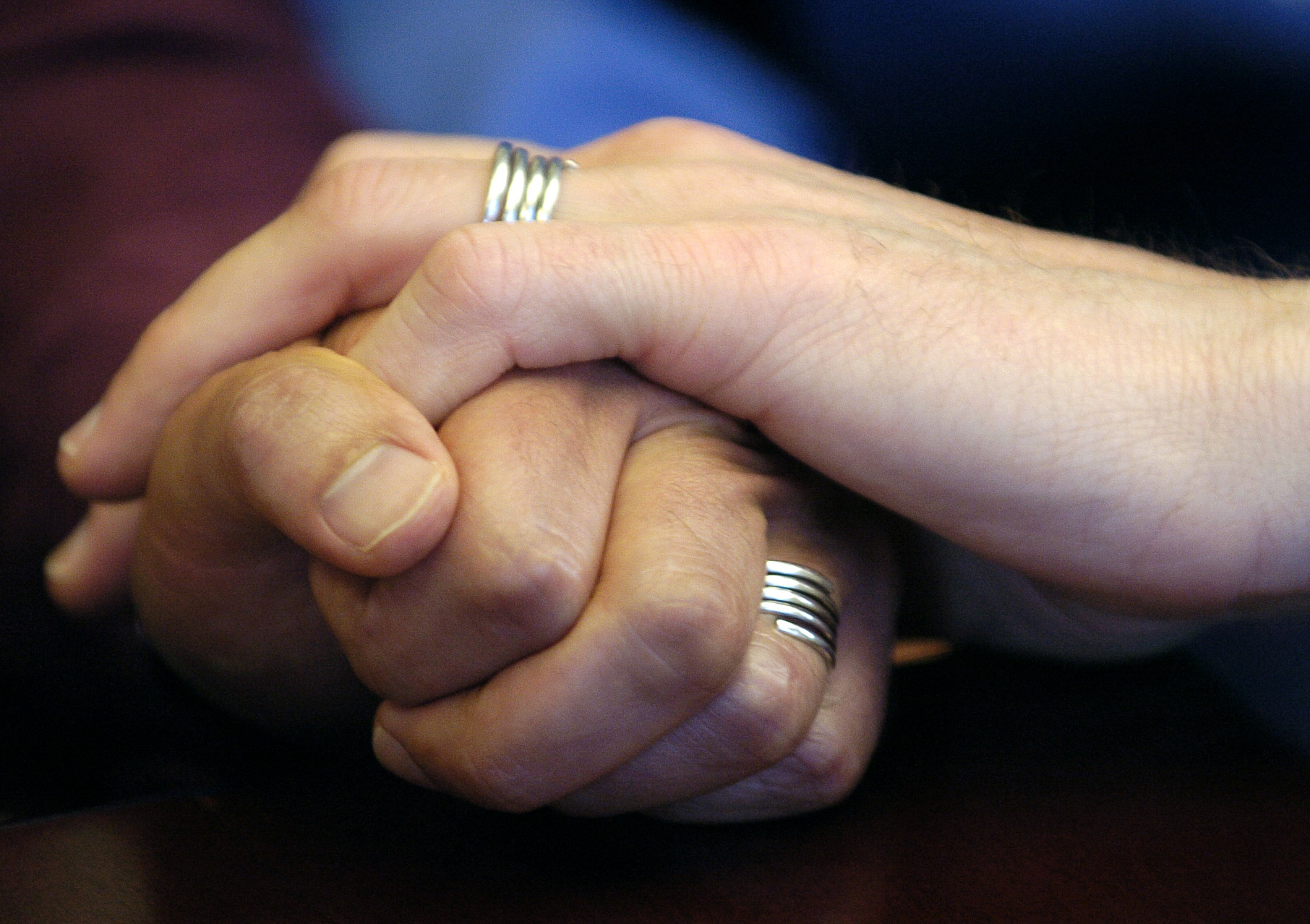

When looking for a soul mate, a mutual appreciation of smoothies probably isn't much of a factor for most people. But Jeremy and Karen Hodgekinson-Price love the blended drinks so much there was a smoothie bar at their wedding.
Granted, the Superior couple share that common quirk, but given their family backgrounds, Jeremy and Karen seemed like an unlikely pair given their family backgrounds.
"I'm the child of divorce, Jeremy's the child of divorce," says Karen. "We're actually both grandchildren of divorce."
They have high hopes for the future. And if it works the way they plan, they will be part of a changing trend of more couples staying together than getting divorced.
In fact the divorce rate in Colorado is at its lowest level in a decade, according to a CPR analysis of court filings and state health records. There were 21,483 divorces in 2013, the latest year data was available from the Colorado Department of Public Health and Environment. That puts Colorado's divorce rate at 4.08 divorces per 1,000 residents, the lowest rate since 2004.
The falling divorce rate follows a national trend, upending once bleak views on the state of modern marriage. And it turns out whether or not someone gets divorced has a lot to do with college education.
Jeremy and Karen waited to tie the knot, but they are like many Americans, who are waiting longer than ever to get married. Last year the median age for getting married was 29 for men and 27 for women. In 1964, the average age was 23.1 and 20.5 respectively.
"I never felt marriage was bad, I always wanted to be married with a child," says Karen, who actually waited a little longer than most to get married: she was 38 and Jeremy was 44. "But waiting until later gave me a chance to have what ended up being a fairly big career along the way."
Before having her son, Karen worked long hours and made good money at a Wall Street investment bank. Jeremy works in marketing. Both have their masters degrees. And that's the crux of it. More than compatibility or mutual attraction or shared interests, the most important predictor of marital success is probably a college degree.
"So they're more educated, they're maybe more financially stable," says Metro State economics professor Christina Huber. "Money is a huge stressor in a marriage."

Colorado's divorce rate is falling, in part, because there are a lot of educated people here, Huber says. The state ranks second in the nation for bachelor degrees per person, and median weekly wages for workers with a bachelor degree are $1,108 -- 70 percent greater than workers with only a high school diploma, according to data from Census Bureau and Bureau of Labor Statistics.
A college education provides more than good family economics, too.
Jeremy Hodgekinson-Price says he spent a lot of time traveling the world before getting married. "And so I gradually got, shall we say, a mature approach about relationships and knowing myself."
Basically, he grew up. Research shows the brain's prefrontal cortex doesn't fully develop until about 25 years old. This part of the brain regulates emotion. People who go to college usually marry later in life and are therefore more mature, at least physiologically.
Higher education can, however, create tension. Women now outpace men in college enrollment, according to a study by the Pew Research Center.
"So as women become more educated they do have more control in the marriage, more say in the marriage," says Huber.
Couples at the lower end of the wage scale struggle with that shifting dynamic says University of Minnesota sociology professor William Daugherty. He says the story is different for educated couples.
"College educated men tend to be somewhat more enlightened, if you will, about women's equality," says Daugherty. "Yet those men still have pretty good jobs so that their wives can feel like he is a reliable breadwinner."
That brings us back to the importance of wealth in marital harmony, and back to the home of Jeremy and Karen Hotchkison-Price. They are both high earners, and were able to save enough money, to afford for Karen to work part time and stay home with their young son.
"There's a lot less financial stress," says Karen. "I'm a Wall Streeter, I'm third generation Wall Street. I would have had to have gone back to work. I would never have seen my husband and my son. Would we have made it? I have no idea."







